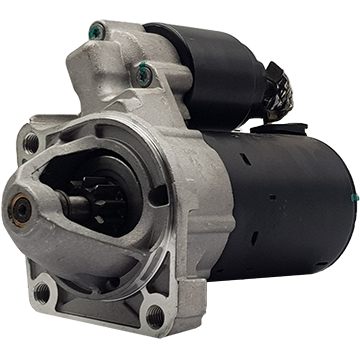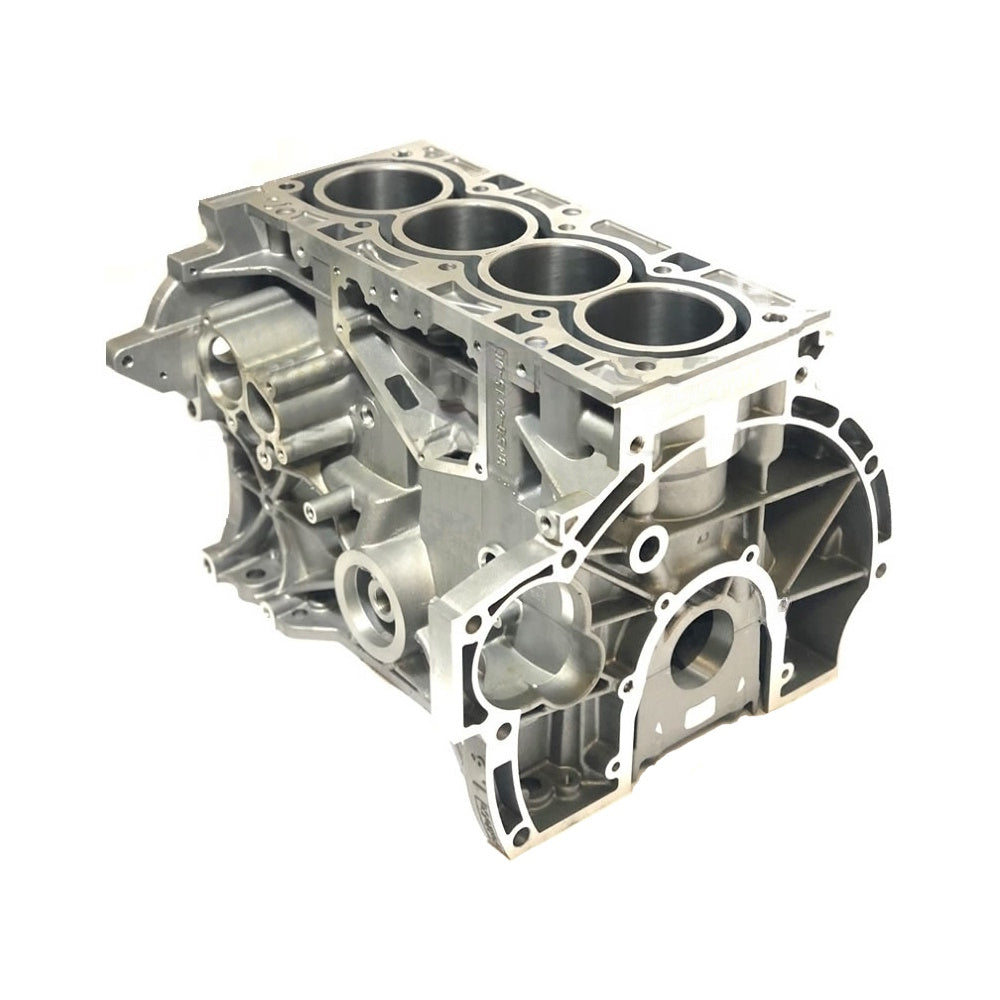The Future of Engines: Technologies Driving Sustainable Power Solutions
As the auto sector navigates the essential transition towards sustainability, the future of engines is increasingly defined by groundbreaking advancements. Electric engine developments, along with encouraging growths in hydrogen gas cells and biofuels, are reshaping the landscape of power solutions. The development of hybrid systems further complicates this advancement, providing both challenges and chances to lower emissions efficiently. Paired with the assimilation of man-made knowledge in engine layout, these technological strides increase critical inquiries regarding their lasting practicality and influence on traditional standards. What might this mean for the market and consumers alike?
Electric Engine Developments
The development of electric engine advancements signifies a critical change in the automobile and aerospace sectors, driven by the immediate need for sustainable choices to fossil fuels. This shift is identified by considerable developments in battery technology, power electronics, and electrical motor style, which jointly enhance the performance and efficiency of electrical engines.
Recent advancements have brought about the production of lighter, a lot more energy-dense batteries, such as lithium-silicon and solid-state batteries, which assure longer arrays and shorter charging times. Furthermore, renovations in electric motor efficiency, such as the use of permanent magnets and advanced cooling systems, enable electrical engines to run successfully under varying problems. These enhancements not just improve car performance but likewise contribute to a decrease in general energy usage.
Additionally, the assimilation of sophisticated software program algorithms has actually maximized power management in electrical automobiles, enabling regenerative stopping and predictive billing strategies. As makers progressively accept electrical propulsion, the automotive and aerospace industries are experiencing a paradigm change towards greener modern technologies. This development not only fulfills regulative demands yet also aligns with customer choices for eco-friendly transportation services, solidifying electric engines as a cornerstone of future sustainable flexibility.
Innovations in Biofuels
As the automobile and aerospace sectors significantly focus on sustainable power resources, innovations in biofuels become a corresponding remedy to electrical engines. Biofuels, stemmed from natural products such as plants, waste, and algae, present a cutting-edge method for lowering greenhouse gas exhausts and reliance on fossil fuels.
Current research has concentrated on boosting the performance and sustainability of biofuel production. Second-generation biofuels utilize non-food feedstocks, lessening competitors with food supply and minimizing environmental influence. Developments in artificial biology have allowed the engineering of microbes to generate biofuels extra successfully, leading to higher returns and reduced production prices.
Additionally, the growth of drop-in biofuels allows for smooth integration into existing facilities, allowing a smoother change for industries generally depending on fossil fuels. ford fiesta engine. These fuels can be used in current engines without alterations, facilitating their fostering throughout numerous sectors
Investments in biofuel technology, in addition to encouraging plans, are vital to drive development and scalability. As the international neighborhood seeks to combat environment modification, biofuels use a practical, instant service that lines up with the overarching objective of sustainability in transport and aviation.
Hydrogen Gas Cell Modern Technology
A growing variety of business and researchers are discovering hydrogen fuel cell technology as a viable alternative to standard power resources in transportation and power systems. This technology transforms chemical energy from hydrogen right into power via an electrochemical response, with water as the only byproduct, making it an eco-friendly alternative.
The core of hydrogen fuel cells is the gas cell stack, where hydrogen particles are split right into protons and electrons. The circulation of electrons generates electricity, while protons relocate through a membrane to integrate with oxygen from the air, developing water. This procedure causes high performance and reduced emissions, placing hydrogen fuel learn the facts here now cells as an important gamer in the transition to lasting power.
Considerable innovations have been made in enhancing the toughness and effectiveness of gas cells, along with lowering costs via ingenious production techniques. In addition, the advancement of hydrogen manufacturing methods, such as electrolysis powered by sustainable power resources, enhances the sustainability of the total system. As framework for hydrogen refueling expands and production techniques come to be more efficient, hydrogen fuel cell innovation holds great promise for decarbonizing different markets, consisting of sturdy transport and stationary power generation.
Hybrid Systems and Their Impact
Crossbreed systems represent a considerable development in sustainable engine innovation, combining typical inner combustion engines with electric propulsion to enhance energy performance and reduce emissions (ford fiesta engine). This double approach permits cars to utilize both source of power, enabling higher flexibility in energy consumption and lowering dependence on fossil gas

In addition to ecological benefits, hybrid systems offer customers his response a practical shift towards fully electric vehicles. They alleviate variety stress and anxiety by combining the convenience of fuel with the advantages of electrical propulsion, making them an appealing choice for a wider target market. As makers buy hybrid modern technology, the growth of more innovative battery systems and light-weight materials remains to enhance efficiency. Generally, hybrid systems stand for a pivotal step in the direction of attaining lasting transport and addressing the urgent requirement for environmentally friendly power solutions.
The Role of AI in Engine Design
Leveraging innovative algorithms and artificial intelligence techniques, the automotive sector is increasingly integrating expert system (AI) into engine design processes. AI boosts the efficiency and efficiency of layout by examining huge datasets to recognize optimal configurations and efficiency specifications. This capacity enables designers to simulate different operating problems and predict engine habits under numerous circumstances, considerably lowering the time and expense connected with typical prototyping methods.
Additionally, AI assists in the advancement of innovative products and combustion processes tailored for sustainability. By enhancing fuel effectiveness and lessening discharges, AI-driven styles align with worldwide efforts targeted at reducing the carbon impact of vehicle engines. Equipment understanding formulas can likewise anticipate upkeep demands, causing enhanced dependability and durability of engine components.
Furthermore, AI contributes in the integration of electrification modern technologies, such as crossbreed systems, where it can maximize battery management and power recuperation processes. As the industry relocates in the direction of even more sustainable power services, the role of AI in engine layout comes to be significantly essential, driving advancement and enhancing the efficiency of future engines. Eventually, the collaboration in between AI and engine design advertises a new period of smarter, cleaner, and extra reliable automobile technologies.

Verdict
In final thought, the future of engines is being formed by a merging of cutting-edge modern technologies that focus on sustainability. Electric engine advancements, biofuel growths, hydrogen fuel cells, and hybrid systems collectively contribute to a substantial decrease in discharges and environmental impact.
Electric engine advancements, along with encouraging advancements in hydrogen fuel cells and biofuels, are improving the landscape of power options. Furthermore, improvements in electrical motor performance, such as the use of irreversible magnets and progressed cooling systems, enable electrical engines to operate efficiently under differing problems. By maximizing click for more info fuel efficiency and reducing exhausts, AI-driven designs straighten with worldwide initiatives intended at minimizing the carbon footprint of automobile engines. As the industry relocates towards even more sustainable power solutions, the role of AI in engine design ends up being increasingly essential, driving advancement and enhancing the efficiency of future engines. Electric engine innovations, biofuel advancements, hydrogen gas cells, and hybrid systems jointly contribute to a considerable decrease in emissions and environmental impact.